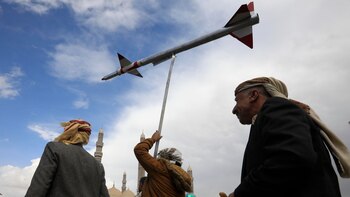
The Ministry of Health reported, this Thursday, April 21, 2022, 274 new cases of covid-19 in Colombia. In the last 24 hours, 21,246 tests were processed, of which 6,960 are PCR and 14,286 are antigens.
The report also noted that four Colombians died of the disease on the last day. In this way, the country reaches a total of 139,759 deaths from the virus since the start of the pandemic.
By aggregating all the figures, Colombia reached a total of 6,090,520 infections, of which 3,020 are active cases and 5,923,901 correspond to positive cases that have already managed to overcome the disease.


There are 151 conglomerates in the country. The territories are: Amazon, Antioquia (Ituango), Arauca, Atlántico, Barranquilla, Bogota, Boyaca, Bolivar, Buenaventura, Caldas, Caqueta, Cartagena, Casanare, Cauca, Cesar, Choco, Cordoba, Cundinamarca, Huila, La Guajira, Magdalena, Meta, Nariño, North Santander, Putumayo, Quindio, Risaralda, San Andres, Santa Marta, Santander, Sucre, Tolima , Valle, Vaupés, Vichada, Guaviare and Guainia.
This is how vaccination is going in the country
The most recent report from the Ministry of Health also indicates that as of 11:59 on Tuesday, April 19, 2022, a total of 82,131,143 doses of the vaccine against covid-19 had already been applied in Colombia.

According to the same report, the number of Colombians with the complete vaccination schedule, that is, those who have already received the two doses of the biological, currently amounts to 28,828,149 people, while 6,405,378 people have been immunized with single doses. Similarly, 11,127,614 booster doses have been applied.
Similarly, a total of 68,198 vaccines were applied during the last day, of which 17,169 correspond to the second injection, while another 4,301 were single-dose.
As a result of the winter season that affects a large part of the country and which, according to IDEAM, will last until next June, Colombia is experiencing an epidemiological peak of acute respiratory infections (ARI). These are caused by viruses such as influenza, rhinoviruses, respiratory syncytial viruses and other agents that can generate common flu, cold. Even other, more severe diseases such as bronchiolitis and pneumonia can occur, mainly in children under five years of age.
Faced with this scenario, MinSalud pointed out that it is important to prevent ARI from the correct use of the mask, to carry out permanent hand washing and to self-isolate in case of symptoms. In this regard, it was indicated that in influenza illness and other acute respiratory infections such as the flu and the common cold, symptoms can be manageable at home and that discomfort can last between three to five days. Symptoms on the other hand are associated with nasal congestion, watery eyes, irritated throat, chills, sneezing and discharge from the nose.
In any case, the most important thing is to self-isolate while you have symptoms and it is recommended that you do so not only the sick person but also the whole family, maintain hydration with home remedies, before fever put warm water cloths on armpits and groin, do not self-medicate and consult health services through the EPS only before alarm signs.
Recommendations to avoid ARI
- Constantly wash your hands with soap and water.
- Wear masks in enclosed spaces, especially in gardens, schools, geriatric centers.
- Persistently clean and disinfect surfaces at home and work.
- Avoid the presence of smoke inside homes and provide ventilation and natural lighting.
- Avoid crowds.
- Avoid sudden changes in temperature.
- Avoid touching your face, mouth and eyes.
- Do not forget the vaccination schedule in groups most vulnerable to ARI: children under six years of age, adults over 60 years old, people with comorbidities and pregnant women.
- Do not neglect breastfeeding in children under six months of age.
KEEP READING:
Últimas Noticias
Debanhi Escobar: they secured the motel where she was found lifeless in a cistern

The oldest person in the world died at the age of 119

Macabre find in CDMX: they left a body bagged and tied in a taxi
The eagles of America will face Manchester City in a duel of legends. Here are the details

Why is it good to bring dogs out to know the world when they are puppies




